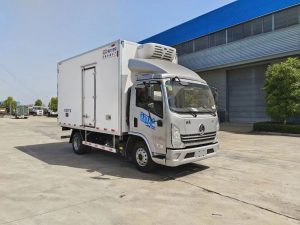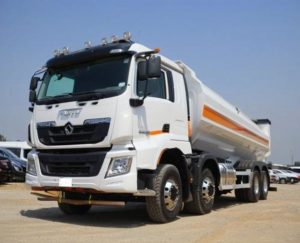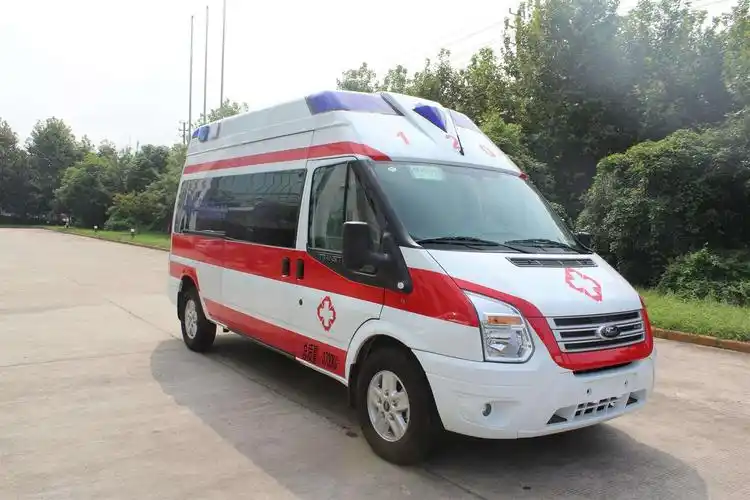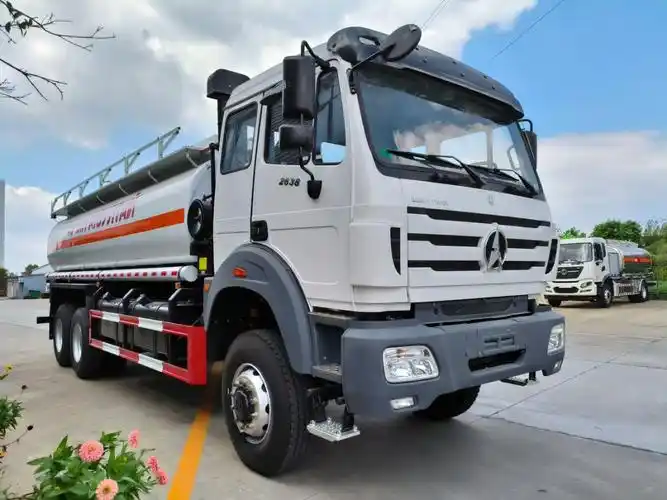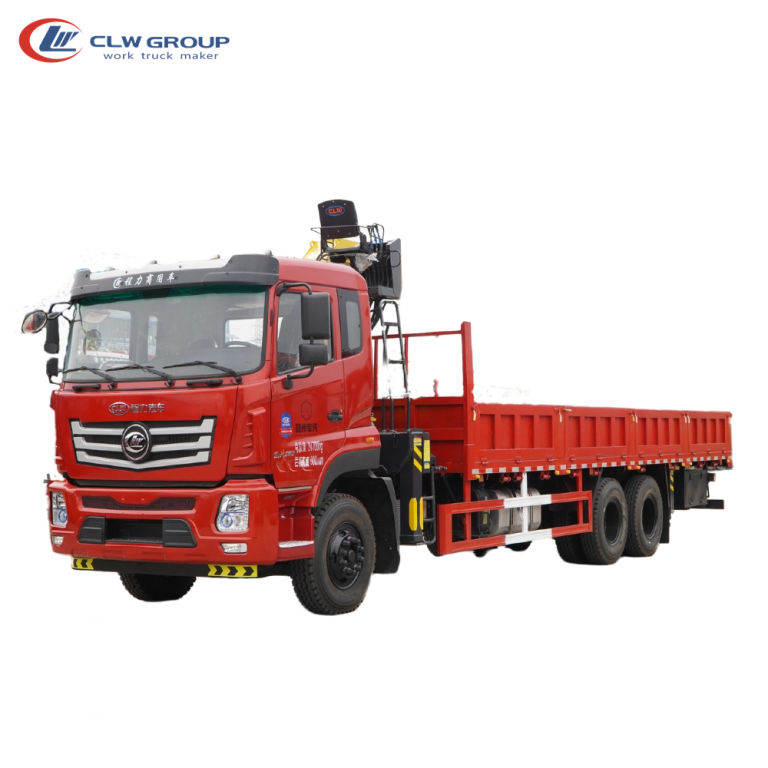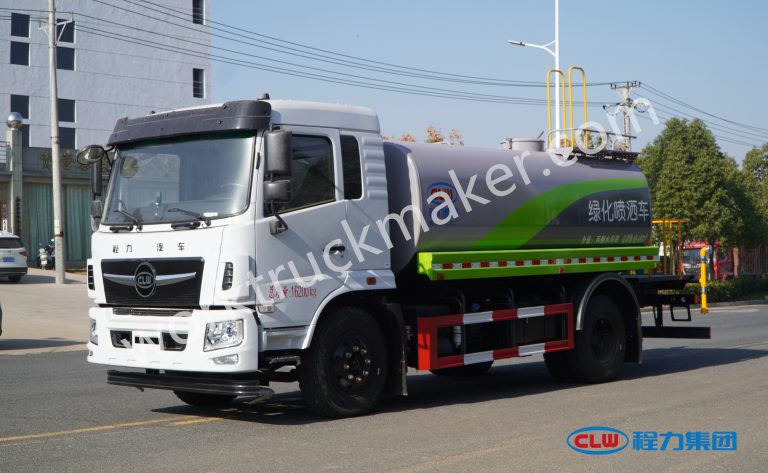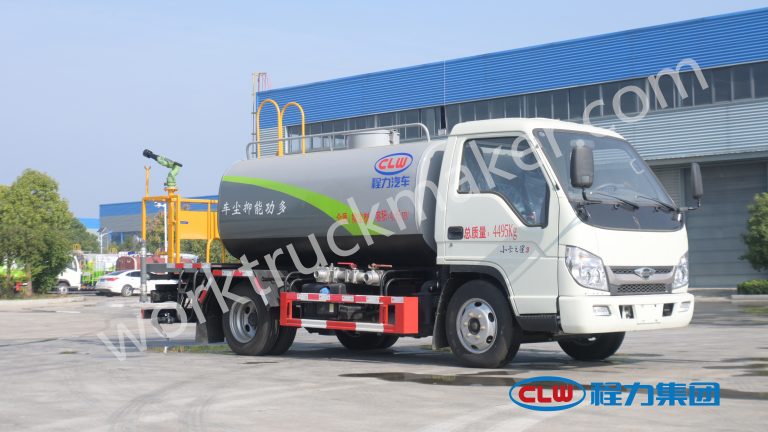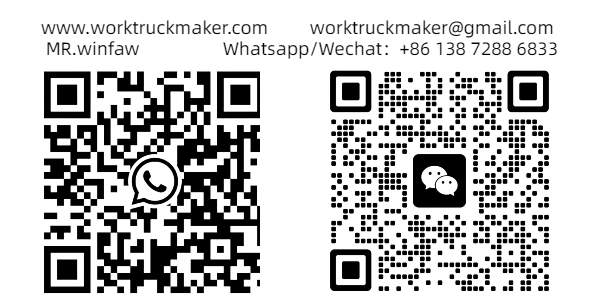Table of Contents
Toggle
Introduction
In a world where convenience is king, fuel trucks play an indispensable role. They are the silent workhorses ensuring that our cars run smoothly, our homes stay warm, and industries keep humming. But what exactly is a fuel truck, and why are they so vital? This article dives deep into the world of fuel trucks, exploring their roles, operations, challenges, and future trends. Buckle up as we journey through the fascinating realm of these mobile fuel stations!
What is a Fuel Truck?
A fuel truck, often referred to as a tanker truck, is a specialized vehicle designed to transport liquid fuel. These trucks come in various shapes and sizes, each tailored to specific types of fuel such as gasoline, diesel, or even jet fuel. At its core, a fuel truck comprises a robust tanker for storage, a sophisticated pumping system for dispensing fuel, and numerous safety features to prevent accidents and spills.
Different Types of Fuel Trucks
Not all fuel trucks are created equal. Some are designed for urban settings with smaller capacities, while others are massive behemoths meant for long-haul routes. There are also specialized trucks for aviation fuel, marine fuel, and even hazardous materials. Each type is engineered to meet the specific requirements of the fuel it carries, ensuring safety and efficiency in transportation.
For instance, urban fuel trucks might have smaller tanks but higher maneuverability to navigate city streets easily. On the other hand, long-haul trucks are designed for durability and large storage capacity, capable of transporting thousands of gallons over vast distances. Aviation fuel trucks come with additional filtration systems to ensure that the high-quality standards required for jet fuel are met.
The Role of Fuel Trucks in the Economy
Imagine a world without fuel trucks – gas stations would run dry, factories would halt production, and daily commutes would become impossible. Fuel trucks are the linchpins in the fuel supply chain, ensuring that gasoline reaches your local gas station and diesel fuels the trucks that deliver goods nationwide. Their importance in maintaining economic stability cannot be overstated.
Fuel Distribution to Gas Stations
One of the primary functions of fuel trucks is delivering fuel to gas stations. These trucks operate on precise schedules to ensure that stations never run out of stock. This constant supply chain activity is crucial for keeping our vehicles on the road and our lives running smoothly.
Consider this: every time you fill up your tank at a gas station, a fuel truck has been there beforehand to ensure that the pumps are ready for you. This involves meticulous planning and coordination to align with demand patterns and ensure timely deliveries. The entire process is a ballet of logistics that keeps the wheels of society turning.
Supply Chain Logistics
Beyond gas stations, fuel trucks also supply industrial sites, construction projects, and even remote locations with the necessary fuels to keep operations running. They are integral to supply chain logistics, acting as the bridge between fuel refineries and end-users.
In many ways, fuel trucks serve as the lifeline for numerous industries. Construction sites rely on them for diesel to power heavy machinery. Remote areas depend on them for heating oil during winter months. Without these mobile giants, the intricate web of supply chains that support modern life would unravel.
Key Components of a Fuel Truck
Understanding how a fuel truck works requires knowing its key components:
Tanker
The tanker is the heart of a fuel truck, designed to store large quantities of liquid fuel safely. It is usually made from aluminum or steel and features multiple compartments to carry different types of fuel simultaneously.
Each compartment is isolated from the others to prevent cross-contamination. The design also includes baffles inside the tank to minimize the movement of liquid during transport, which helps maintain stability and safety. These features ensure that the tanker can carry diverse fuels like gasoline, diesel, and kerosene in one trip without compromising quality or safety.
Pumping System
The pumping system ensures that fuel can be loaded and unloaded efficiently. It includes pumps, hoses, and meters to measure the exact amount of fuel being dispensed or received.
The pumping system is a marvel of engineering precision. Modern systems come equipped with digital meters that provide accurate readings down to the last drop. Some advanced models even feature automated systems that can calibrate themselves based on the type of fuel being handled, ensuring optimal performance across various conditions.
Safety Features
Safety is paramount when dealing with flammable liquids. Modern fuel trucks come equipped with various safety features like emergency shut-off valves, spill containment systems, and fire extinguishers to mitigate risks during transport.
These safety features are not just add-ons but essential components that undergo rigorous testing and certification processes. Emergency shut-off valves can instantly stop the flow of fuel in case of a leak or accident. Spill containment systems include barriers and absorbent materials designed to contain any accidental spills immediately. Fire extinguishers are strategically placed around the truck to ensure quick access in case of an emergency.
How Fuel Trucks Operate
The operation of a fuel truck is a well-orchestrated process involving several steps:
Loading Process
Loading begins at the refinery or a distribution terminal where fuel is pumped into the tanker’s compartments. This process is carefully monitored to prevent overfilling and ensure accurate measurement.
During loading, operators use advanced metering systems to ensure that each compartment receives the correct amount of fuel. This precision is crucial because overfilling can lead to spills and underfilling means less efficient deliveries. Additionally, operators must adhere to strict guidelines regarding temperature and pressure conditions to maintain the integrity of the fuel.
Transportation Protocols
Once loaded, the truck embarks on its journey following strict transportation protocols. Drivers must adhere to speed limits, route plans, and safety checks to ensure the safe delivery of fuel.
Transporting flammable liquids involves navigating a maze of regulations designed to minimize risks. Drivers undergo specialized training to handle these vehicles safely and efficiently. They must perform regular checks on their equipment, including brakes, tires, and safety systems before hitting the road. Furthermore, route plans often include designated stops for rest and refueling (for both driver and vehicle), ensuring that long journeys are managed safely.
Unloading Procedures
Upon reaching the destination, the unloading process begins. This involves connecting hoses from the tanker to storage tanks at gas stations or industrial sites. Again, precision is key to avoid spills and ensure accurate delivery amounts.
Unloading requires meticulous attention to detail. Operators must ensure that all connections are secure before starting the pump system. They also monitor flow rates closely to prevent overflows or underfills. Modern unloading systems often include automated shut-off features that stop the flow once a predetermined level is reached in the storage tank.
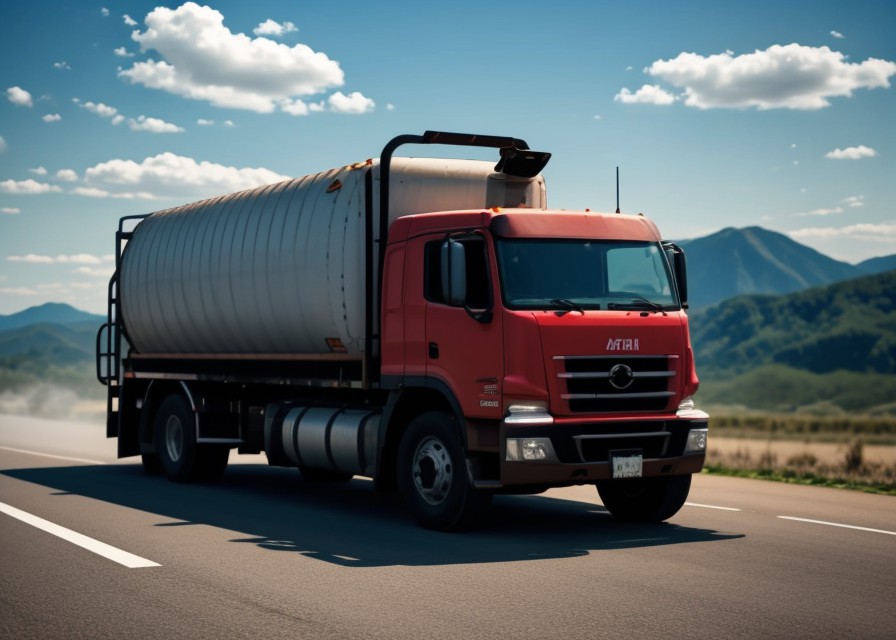
Safety Measures and Regulations
Given the hazardous nature of their cargo, fuel trucks are subject to stringent safety measures and regulations:
Government Regulations
Various government bodies oversee the operation of fuel trucks, enforcing rules on everything from vehicle maintenance to driver training and emergency preparedness. These regulations are designed to minimize risks associated with transporting flammable liquids.
For instance, in the United States, the Department of Transportation (DOT) has specific guidelines for fuel trucks. These include requirements for tank construction, regular inspections, and certifications for drivers. Additionally, the Environmental Protection Agency (EPA) mandates measures to prevent environmental contamination, such as secondary containment systems and emergency response plans.
Safety Protocols for Operators
Operators undergo rigorous training to handle fuel trucks safely. This includes learning how to manage emergency situations like spills or fires and understanding the mechanical aspects of their vehicles.
Training programs cover a wide range of topics, from basic vehicle operation to advanced emergency response techniques. Operators are taught how to use fire suppression systems, handle hazardous materials safely, and perform routine maintenance checks. This comprehensive training ensures that they are well-prepared to handle any situation that may arise during transport.
Technological Advancements in Fuel Trucks
The world of fuel trucks is not static; it’s continually evolving thanks to technological advancements:
GPS and Fleet Management Systems
Modern fuel trucks are equipped with GPS systems that allow real-time tracking and route optimization. Fleet management software helps companies monitor vehicle performance, schedule maintenance, and improve overall efficiency.
These systems offer numerous benefits. Real-time tracking allows dispatchers to monitor the location and status of each truck, ensuring timely deliveries and reducing the risk of theft. Route optimization algorithms can suggest the most efficient paths, saving time and fuel. Fleet management software also provides valuable insights into vehicle performance, helping companies identify issues before they become major problems.
Automated Safety Systems
Newer models come with automated safety systems that can detect potential issues like leaks or mechanical failures before they become serious problems. These technologies enhance safety and reliability in fuel transportation.
For example, advanced sensors can detect even small leaks in the tanker and alert the driver immediately. Automated braking systems can prevent accidents by applying the brakes if they sense an imminent collision. These technologies not only improve safety but also help reduce downtime and maintenance costs by addressing issues proactively.
Environmental Considerations
In an era where environmental sustainability is crucial, the fuel truck industry is also making strides:
Emission Control Technologies
Advanced emission control technologies are being integrated into fuel trucks to reduce their carbon footprint. These include catalytic converters and particulate filters that minimize harmful emissions during transport.
Catalytic converters work by converting harmful pollutants in exhaust gases into less harmful substances before they are released into the atmosphere. Particulate filters trap soot and other particles, preventing them from being emitted. These technologies help fuel trucks meet stringent emission standards and contribute to cleaner air.
Spill Prevention Measures
To protect the environment from accidental spills, modern tankers feature double-walled construction and advanced leak detection systems. These measures ensure that even in case of an accident, the risk of environmental contamination is minimized.
Double-walled tanks provide an extra layer of protection against leaks. If the inner wall fails, the outer wall can contain the spill until it can be addressed. Leak detection systems use sensors to monitor the integrity of the tank and alert operators if a problem is detected. These measures are essential for preventing spills and protecting sensitive ecosystems.
Challenges Faced by the Fuel Truck Industry
Operating a fleet of fuel trucks comes with its own set of challenges:
Regulatory Compliance
Keeping up with ever-changing regulations can be daunting for companies. Compliance requires continuous investment in training, equipment upgrades, and administrative oversight to meet all legal requirements.
Regulations vary by region and can change frequently, making it challenging for companies to stay compliant. Failure to meet regulatory standards can result in hefty fines, legal penalties, and damage to a company’s reputation. As a result, companies must invest significant resources in staying up-to-date with the latest regulations and ensuring that their operations meet all requirements.
Operational Costs
Running a fleet of fuel trucks involves significant operational costs including maintenance, fuel expenses, insurance premiums, and driver salaries. Managing these costs while remaining competitive is a constant balancing act for businesses in this sector.
Maintenance costs include regular inspections, repairs, and part replacements to keep vehicles in top condition. Fuel expenses can be substantial, especially for long-haul routes. Insurance premiums are high due to the risks associated with transporting flammable liquids. Additionally, attracting and retaining skilled drivers requires offering competitive salaries and benefits. Balancing these costs while maintaining profitability is a major challenge for companies in the fuel truck industry.
Future Trends in the Fuel Truck Industry
The future holds exciting possibilities for the fuel truck industry:
Electric and Hybrid Fuel Trucks
As the world shifts towards greener energy solutions, electric and hybrid fuel trucks are emerging as viable alternatives to traditional diesel-powered vehicles. These new models promise lower emissions and reduced operational costs in the long run.
Electric fuel trucks use battery power instead of diesel engines, resulting in zero tailpipe emissions. Hybrid models combine electric motors with traditional engines to improve fuel efficiency and reduce emissions. While these technologies are still in the early stages of adoption, they have the potential to revolutionize the industry by offering more sustainable transportation options.
Innovations in Fuel Delivery
Innovations such as drone-assisted inspections, automated refueling systems, and blockchain technology for tracking shipments are poised to revolutionize how fuel delivery is managed in the future. These advancements aim to enhance efficiency, safety, and transparency across the industry.
Drone-assisted inspections can quickly assess the condition of tanks and pipelines, identifying potential issues before they become serious problems. Automated refueling systems use robotics to handle the loading and unloading process, reducing the risk of human error. Blockchain technology provides a secure and transparent way to track shipments from refinery to end-user, ensuring accountability at every step of the supply chain.
Conclusion
From ensuring our daily commutes to supporting industrial operations, fuel trucks are vital cogs in the machinery of modern society. They embody a blend of engineering prowess, logistical expertise, and technological innovation that keeps our world fueled up and ready to go. As we look towards a future marked by sustainability and technological advancements, the role of fuel trucks will undoubtedly continue to evolve, driving us forward into new frontiers of efficiency and environmental stewardship.

